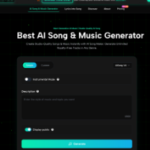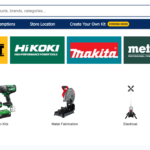Introduction
In today’s fast-evolving world of education, digital transformation, and data-driven decision-making, the term RWU UAR stands as a powerful and multi-dimensional concept that ties together several domains—academic research, business intelligence, automation systems, and IT governance. As modern institutions and companies continue to seek innovative ways to foster growth, improve operations, and empower individuals, RWU UAR emerges as a cornerstone framework.
At its heart, RWU UAR refers to Roger Williams University’s Undergraduate Academic Research initiative, but it has also become a term associated with revenue metrics, user activity reporting, and role-based access systems across sectors. Whether you’re a student diving into meaningful research, a business leader looking to understand customer behavior, or an IT specialist securing enterprise networks, RWU UAR has relevance for you. This article explores the rich layers of meaning behind RWU UAR, offering detailed insights into its applications, benefits, and future significance.
RWU UAR in Higher Education – Roger Williams University Undergraduate Academic Research
At Roger Williams University in Rhode Island, RWU UAR symbolizes a transformative educational experience that places research at the very center of undergraduate learning. Unlike many institutions that limit serious academic inquiry to postgraduate studies, RWU integrates research into the undergraduate curriculum, allowing students from all disciplines to engage with real-world problems, design their own studies, and co-create knowledge with faculty mentors.
This emphasis on research early in a student’s academic journey cultivates essential skills such as critical thinking, data analysis, project planning, and presentation abilities—skills that not only prepare students for graduate school but also position them as competitive candidates in a diverse job market. Through the UAR initiative, students are no longer passive consumers of knowledge but active producers, investigating questions that matter to communities, industries, and society at large.
The Educational Philosophy Behind RWU UAR
The RWU UAR framework is grounded in a deeply student-centered philosophy that views research as a catalyst for intellectual, professional, and personal development. The first pillar of this philosophy is experiential learning, which moves students beyond textbook theory and into applied environments where knowledge is tested, adapted, and implemented. Whether it’s conducting environmental fieldwork, analyzing social trends, or developing design solutions, students learn by doing. The second pillar is faculty mentorship, a hallmark of RWU’s collaborative academic culture. Professors are not distant authorities but engaged partners who support students from idea to execution.
The third and equally vital pillar is global relevance. RWU UAR projects often explore contemporary challenges—climate change, public policy, community health, cultural representation—and connect student inquiry to broader social, political, and economic issues. This integration of practical experience, mentorship, and global consciousness defines RWU’s research-driven approach to undergraduate education.
The Provost’s Fund for Student Research
A key component of the RWU UAR initiative is the Provost’s Fund for Student Research, which provides critical financial support to undergraduates pursuing independent or faculty-led research projects. Offered twice yearly—in both the fall and spring semesters—this fund allows students to purchase materials, travel for fieldwork, and attend academic conferences. Awards range from several hundred to over a thousand dollars, making research accessible regardless of a student’s financial background.
Importantly, the application process itself is a learning experience; students must craft compelling proposals, justify their budgets, and articulate the significance of their research. This not only builds confidence but also equips students with the essential grant-writing and project management skills required in academic and professional environments. Through the Provost’s Fund, Roger Williams University signals a serious commitment to empowering young scholars and turning their ideas into impactful outcomes.
Opportunities Beyond the Classroom
What makes RWU UAR truly transformative is how it extends learning far beyond the walls of the classroom. Students who participate in research are given the chance to present at regional, national, and even international conferences, where they gain exposure to scholarly communities and build their professional networks. Many also go on to publish their work in peer-reviewed journals, gaining recognition for their intellectual contributions before even completing their undergraduate degrees.
Others collaborate with local nonprofits, governmental agencies, or private companies, applying their research to real-world challenges and community needs. Additionally, research projects often evolve into creative arts initiatives, service-learning ventures, or policy advocacy campaigns, showing the breadth of what undergraduate research can accomplish. These experiences foster not only academic growth but also leadership, adaptability, and self-confidence—qualities that resonate deeply with employers and graduate schools alike.
Faculty Mentorship and Collaboration
A defining feature of the RWU UAR initiative is its deep emphasis on faculty mentorship and collaboration. Rather than functioning in isolation, students work closely with professors who bring their expertise, experience, and networks to the table. Mentors help students refine research questions, design methodologies, navigate data collection, and interpret results. This one-on-one guidance ensures not just rigor and accuracy but also helps students stay motivated and resilient when facing the inevitable challenges of research.
Moreover, collaboration often happens among students themselves—many RWU UAR projects are team-based, simulating the collaborative environments of modern workplaces and research labs. Students learn to divide tasks, share responsibilities, exchange feedback, and work toward common goals. This horizontal model of learning prepares students for the dynamics of real-world problem-solving, where communication, coordination, and respect for diverse perspectives are key to success.
Undergraduate Fellowships and External Research Opportunities
RWU doesn’t stop at internal support; the university actively promotes external fellowships, scholarships, and research partnerships. Students are encouraged to apply for prestigious programs such as Fulbright, Goldwater, and Gilman fellowships, or participate in multi-university networks addressing global issues. These experiences often involve international travel, exposure to cross-cultural research methods, and collaboration with students and researchers from around the world. In many cases, RWU provides coaching and advising to help students craft competitive applications, enhancing their chances of selection.
These opportunities align with the university’s values around diversity, leadership, and global citizenship, making RWU UAR not just a local initiative but a launchpad for worldwide impact. For students seeking to make a difference beyond the campus, these fellowships offer unparalleled access to resources, mentors, and experiences that can change the trajectory of their academic and professional careers.
Research Support Infrastructure
To maintain the high standards of the RWU UAR program, the university offers an impressive array of supportive infrastructure. Students have access to extensive library resources, including scholarly databases, digital archives, and interlibrary loan systems. Technical training is provided through workshops in statistical software like SPSS and Stata, as well as in research ethics and compliance protocols.
Regular events such as Research Blitz allow students to present findings in a rapid-fire format that hones their public speaking and persuasion skills. RWU also ensures that all research adheres to ethical standards, requiring students to complete Institutional Review Board (IRB) training where applicable. These resources are not merely optional add-ons—they are essential elements that empower students to conduct meaningful, methodologically sound research with the confidence that they are meeting the highest academic and ethical standards.
Interdisciplinary Applications of RWU UAR
One of the most compelling aspects of RWU UAR is its interdisciplinary reach. Research isn’t confined to STEM fields or social sciences; students from art, architecture, humanities, law, business, and engineering are all active participants. A marine biology student may study coastal ecosystems, while a communications major examines social media’s impact on mental health. A law student might research policy implications of immigration reform, while an art student explores visual storytelling in activist movements.
This diversity ensures that all students, regardless of major, can find meaningful ways to contribute to and benefit from the research culture at RWU. It also reflects the university’s commitment to holistic education, where different fields inform and enrich each other. This interdisciplinary model prepares students for the complexities of modern problems, which rarely fall neatly into one category or discipline.
Student Impact and Career Success
Participation in RWU UAR has long-term benefits that extend into nearly every aspect of a student’s future. Graduates who engage in undergraduate research consistently report higher levels of career readiness, confidence in their abilities, and success in postgraduate pursuits. Research experience sets students apart in competitive graduate school admissions, where original work, publications, or conference presentations provide clear evidence of scholarly potential.
In the job market, employers view research as a sign of initiative, independence, and analytical thinking—traits valued across industries. RWU alumni often attribute their early career wins and academic achievements to the habits and skills they cultivated through UAR. Whether it’s managing timelines, communicating complex ideas, or troubleshooting challenges, students who have conducted research are better prepared to thrive in dynamic, fast-paced environments.
Notable Student Success Stories
RWU UAR is filled with inspiring stories of student transformation. Some students have presented their findings at Ivy League symposia, while others have published in academic journals or received national fellowships. There are stories of students who started with modest research ideas and ended up creating tools or frameworks adopted by community organizations. Others have gone on to secure research assistantships at top-tier graduate programs, citing their RWU UAR experiences as the key differentiator in their applications. These success stories serve not just as testimonials, but as powerful motivators for incoming students to see what’s possible. They also reinforce RWU’s reputation as an institution that fosters excellence, creativity, and real-world impact—values that extend far beyond the campus gates.
The Broader Mission of RWU
RWU UAR reflects and reinforces Roger Williams University’s broader mission: to educate the whole person, promote social responsibility, and drive innovation through community engagement. The university sees undergraduate research not as a luxury or niche opportunity, but as a core component of academic excellence and leadership development. It prepares students to not only understand the world but to improve it—to ask difficult questions, propose thoughtful solutions, and engage ethically with the challenges of their time.
In this way, RWU UAR is not just about producing research; it’s about producing citizens, professionals, and changemakers. It aligns with the university’s strategic vision to cultivate leaders who combine intellectual rigor with compassion, insight, and action—a vision that continues to inspire students and educators alike.
RWU UAR in Business, SaaS, and Data Analytics Contexts
Understanding RWU and UAR in the Business World
In business and analytics, the term RWU UAR takes on a different meaning from its academic origin. Here, RWU often stands for Revenue Unit, a metric used to track how much money is generated per customer, product, or service. UAR, on the other hand, typically refers to a User Activity Report, which shows how users interact with a website, app, or platform. When combined, RWU UAR becomes a powerful business tool—one that analyzes how specific user behaviors translate into real revenue. This helps companies make better decisions about product design, pricing models, marketing campaigns, and customer engagement.
How RWU UAR Supports SaaS Growth and Optimization
For SaaS (Software as a Service) businesses, RWU UAR is a valuable concept. Platforms track how often users log in, what features they use, how long they stay, and which actions lead to upgrades or cancellations. By analyzing this behavior through UAR and matching it with RWU (the revenue those users generate), companies can spot which features drive the most profit. For example, if users who engage with a specific tool are more likely to upgrade to premium plans, that feature becomes a focus area for growth. RWU UAR also helps identify high-value customers, optimize onboarding flows, and reduce churn rates.
Key Industry Applications of RWU UAR
RWU UAR is used across many industries to improve performance. In telecommunications, it helps providers understand which services (like data or calls) bring in the most money and which users are the most active. In e-commerce, user behavior—such as product views, cart activity, and purchases—is linked directly to revenue per user. In streaming services, RWU UAR helps determine what type of content increases subscriptions or watch time. And in retail, it helps companies track which customer actions lead to higher sales. These insights help businesses personalize experiences, improve user journeys, and increase their return on investment.
Benefits of Combining User Activity and Revenue Metrics
The integration of user activity data with revenue performance offers several benefits. Businesses can better understand their customers, tailor experiences to specific segments, and design features that increase value. It also allows for real-time decision-making, as companies can monitor user trends and immediately adjust strategies. This kind of data-driven approach makes marketing more effective, sales funnels more efficient, and product development more focused. Ultimately, RWU UAR gives businesses the insight needed to grow smarter and faster.
Privacy and Data Ethics in RWU UAR Analytics
As helpful as RWU UAR can be, companies must also be careful with data privacy and compliance. Tools that track user activity must follow regulations like GDPR in Europe or CCPA in California. This means being transparent about data collection, storing information securely, and always gaining user consent. Ethical data use builds trust with customers and ensures long-term sustainability. When done responsibly, RWU UAR is not only a growth engine but also a model of respectful, user-focused business analytics.
RWU UAR in IT Systems and Cybersecurity
In the field of information technology and cybersecurity, RWU UAR carries yet another practical meaning. In this context, RWU can refer to Read/Write Unit, a critical component in managing how data is stored and accessed in computing systems. Meanwhile, UAR often stands for User Access Request or User Access Review, which are both key processes in identity and access management (IAM). These IT interpretations help organizations control which users can access what data, ensuring both security and compliance. Together, RWU UAR becomes part of a secure digital infrastructure where data is carefully managed and access is granted only to the right people, at the right time.
In system logs and enterprise software environments, RWU UAR shows up during audits, permission checks, and error logs. For developers and IT teams, these indicators confirm that user access workflows are functioning as expected and that sensitive resources are protected. The rise of remote work, cloud computing, and software-as-a-service (SaaS) platforms has made access control more important than ever. RWU UAR practices help maintain zero-trust architecture, enforce role-based access control (RBAC), and prevent unauthorized data exposure. As cyber threats grow more sophisticated, frameworks like RWU UAR support organizations in staying secure, efficient, and compliant with data regulations.
RWU UAR as a Business Automation Platform – “Ready When You Are”
In yet another exciting use case, RWU UAR is being used to describe a business automation platform known as “Ready When You Are Unified Automation Resource.” This platform is tailored for small to mid-sized businesses and offers tools to manage customer relationships, automate marketing workflows, and streamline analytics. Unlike enterprise software that can be expensive or complex, RWU UAR platforms are designed to be simple, cost-effective, and scalable. They often include built-in CRM (Customer Relationship Management), AI-generated insights, and GDPR-compliant data handling—all in one unified system.
What sets this version of RWU UAR apart is its focus on automation for startups and entrepreneurs. Instead of managing multiple tools, users can rely on one streamlined solution to handle sales pipelines, email marketing, website engagement tracking, and customer segmentation. RWU UAR platforms are also designed with integration in mind, connecting with popular tools like Google Analytics, Mailchimp, Shopify, and more. For businesses looking to grow fast without hiring large marketing or IT teams, RWU UAR acts as a smart assistant that’s always ready—hence, “Ready When You Are.”
RWU UAR in K–12 and University IT – Unified Access in Education
Educational institutions, particularly K–12 schools and universities, are increasingly adopting RWU UAR frameworks to manage digital access for students, teachers, and staff. In this context, RWU UAR stands for Role-Weighted User Unified Access and Resources. It is a method of assigning the right digital tools and permissions based on a user’s role within the school ecosystem. For example, students get access to learning apps and coursework, while teachers receive grading tools and communication platforms. IT administrators oversee the system, ensuring that permissions stay up-to-date and secure.
Popular education platforms like Google Classroom, Microsoft Teams for Education, and ClassLink rely on these principles to streamline access management. When a new school year begins or when students transfer in or out, RWU UAR frameworks automatically handle account provisioning, resource allocation, and permission audits. This approach not only improves efficiency but also ensures student data privacy and compliance with laws like FERPA in the U.S. or GDPR in Europe. With schools embracing digital learning, RWU UAR helps create a seamless, safe, and well-managed digital environment for everyone involved.
RWU UAR and Global Innovation Models
Beyond individual use cases, RWU UAR represents a larger global trend: the fusion of education, automation, and data security into unified systems of innovation. Universities like Reutlingen University of Applied Sciences in Germany and Roger Williams University in the United States are leading examples of how University-Applied Research (UAR) connects academia with industry. These institutions are investing in research that has real-world impact—helping students build skills while solving problems for businesses, governments, and communities.
RWU UAR is also part of digital transformation strategies in business and government. Whether through automation platforms, advanced data analytics, or cloud-based IAM systems, the principles behind RWU UAR help drive smarter operations and innovation. As global organizations aim to stay competitive and sustainable, RWU UAR frameworks support goals like AI integration, remote collaboration, and scalable education systems. With the right infrastructure and ethical practices, RWU UAR can act as a blueprint for 21st-century progress across borders and industries.
Conclusion
The term RWU UAR may seem niche at first glance, but it is far more than a simple acronym. It represents a multi-layered concept that touches education, business, technology, and security. In the academic world, it empowers undergraduate students at Roger Williams University to become real-world researchers and changemakers. In business, it becomes a tool for aligning user behavior with revenue. In IT, it secures data systems and controls access. And in automation, it powers platforms that help small businesses scale with confidence.
FAQs About RWU UAR
1: What does RWU UAR mean?
RWU UAR stands for Roger Williams University Undergraduate Academic Research. It is a program that gives undergraduate students the chance to do hands-on research, work with faculty mentors, and explore real-world problems in science, business, arts, and more. It also has technical meanings in IT and business, such as Revenue per Unit and User Access Reports.
2: Who can participate in RWU UAR?
Any undergraduate student at Roger Williams University can participate in RWU UAR. Students from all majors—including biology, art, law, business, and engineering—are welcome to do research projects, receive funding, and present their work at conferences.
3: Is RWU UAR only for education?
No, RWU UAR is used in different industries. In education, it refers to research at Roger Williams University. In business, it can mean Revenue Unit and User Activity Reports. In IT, it can refer to Role-Weighted User Unified Access and Resources, which helps manage digital access in schools and companies.
4: What is the Provost’s Fund in RWU UAR?
The Provost’s Fund for Student Research is part of RWU UAR. It gives students money to support their research. This can help pay for travel, materials, or going to conferences. Students apply each semester, and the funding helps turn ideas into real projects.
5: Why is RWU UAR important for careers?
RWU UAR helps students get real-world skills. By doing research, students learn how to think critically, manage projects, and communicate ideas. This makes them stronger job candidates and gives them an advantage when applying to graduate school or professional roles.
EXPLORE MORE: General News TheWeeklySpooncom: Trusted Source for Powerful Daily Updates
For More Information, Visit Timelymagazine








